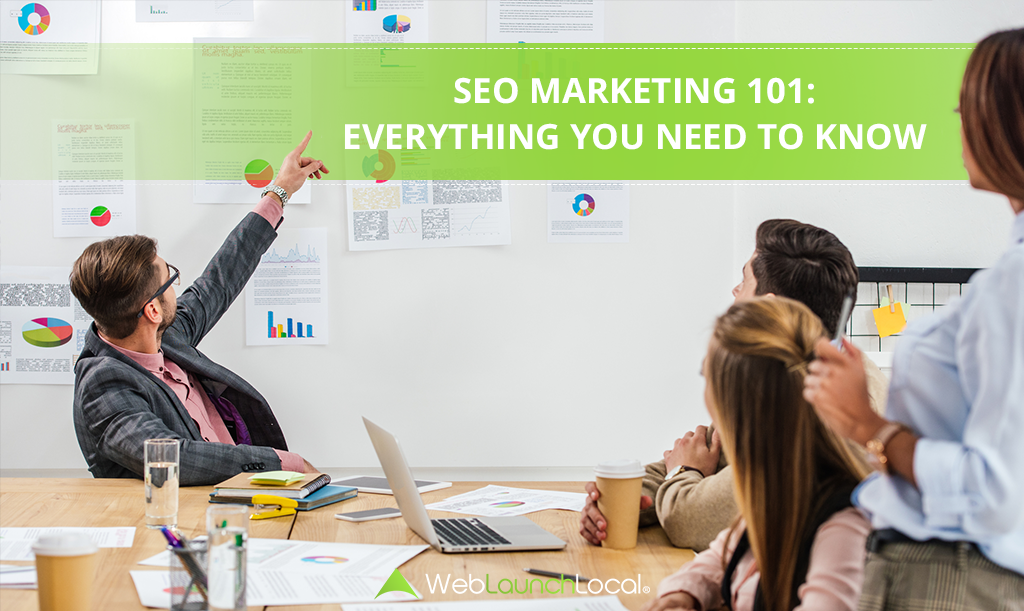
What is SEO Marketing? In short, SEO is a way to boost the traffic to your website by changing a number of details depending on what your audience is looking for on their own. So, instead of making yourself more visible by adding a bunch of unnecessary bells and whistles to your site, you make it so more people reach you naturally on the internet based on their interests.
That’s all fine, but your next questions probably are “how can this benefit my business?” and “how do I apply it to my website?”. No need to worry, we’ve made an easy-to-read guide that answers questions like “what is SEO and how does it work?” If you’ve ever wanted to know, now is the time. Let’s get learning!
How do we define SEO?
First of all, SEO stands for Search Engine Optimization, and it refers to the many ways you can tweak your online presence to attract more and better customers to your business as a result of their web searches. All of this is done in an organic, meaning that you don’t have to pay search engines at all to get these results.
A big part of it is knowing the kind of people you want to attract and how they behave online in order to target them more efficiently. What engines are they using? What terms do they input when they look for the kind of products and services you offer? What’s the type of content they consume on the internet? The answers to these questions are the foundation on which to do effective SEO.
One thing you should understand about SEO is that the right way to do it is not set in stone, and the very success of it is not something that can be measured overnight. The first changes will always be small, but they will lead you to greater successes if you keep up with them.
What are the goals of SEO? The following are a few that most experts will agree on:
- Offer more relevant content for your target audience
- Appear first over your competitors in search results (literally on top of them)
- Create awareness of your business via related search results
- Increase organic traffic to your website from more qualified customers
- Improve your website’s interface so visitors will find it easier to navigate
Content and keywords
While there are plenty of steps to set up an effective SEO strategy, content is the lifeblood of the whole system, so you should never forget the big picture when focusing on the finer details. What’s the big picture, you ask? Quality content that your visitors enjoy reading, of course! The current approach to quality SEO is to create quality content that’s compatible with your keywords, and not to build content around the keywords.
But what are keywords? In SEO, they’re words or whole phrases that people use to search for answers on the internet, the so-called “search queries.” By adding them as seamlessly and closely as possible to your content — from the descriptions in your websites to your blogs, and even on videos — then it will be one of the first results people will see come up on their device, and that way are more likely to visit you.
There are pages and pages of information we could write about the importance of keywords, but the main thing to get from this is that striking the right balance of relevant keywords and quality content is a great part of what makes SEO a successful and constantly evolving way of attracting customers online.
How important is SEO?
No matter how many billions of dollars are invested in advertising, social media and other methods of traffic generation every year, the bulk of it all comes from search engines, while savvy and inexperienced users will both perceive them more positively than paid advertising, therefore getting more clicks, and this is true for mobile and desktop alike.
It’s also the only marketing strategy that gets better results as time goes on, contrary to paid advertisements that need a constant, uninterrupted stream of revenue to perform well at all. With the right tweaks and attention, good content with the right keywords can give out increasingly good results that snowball over time and continue ranking high on web search results.
Perhaps most important of all is the fact that search engines approve and even encourage good SEO, including Google since their algorithms grow more complex every day but still need help offering smarter, cleaner results. Good practices will net you a high place every single time a qualified customer searches for one of your keywords, and search engines will help you get those results.
Thanks to the plenty of resources available online (including Google’s own guide) you can perform some of the basic functions of SEO yourself, but a few steps down the line, or whenever you think it’s necessary to do some harder tasks, you might prefer the guidance of an expert. A good SEO company can save you time, money, and prevent your content from falling into the many wrong SEO techniques that can harm your site’s ranking. Don’t let all that hard work go to waste!


